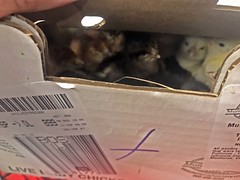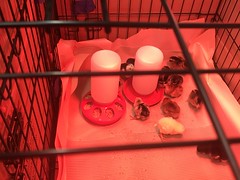Gardeners Mourn the Closing of Beloved 89-Year-Old Garden Center
With Thanks to: https://www.gardenrant.com/2019/04/gardeners-mourn-the-closing-of-beloved-89-year-old-garden-center.html
Yesterday my long-time favourite garden center announced it’ll near soon. Here’s my tribute to the business and its people on a local site . I’m reposting it here for your Rant ’ s wider audience since the final is part of a national fashion that is very miserable. It reveals what great garden centers do for clients and the community and their disappearance is a loss that is massive. (Sob!)
 It’s official. In the present press release, Behnke Nurseries declared that after 89 decades, it is going to be heading out of business in June. This loss will be mourned by thousands of local gardeners.
It’s official. In the present press release, Behnke Nurseries declared that after 89 decades, it is going to be heading out of business in June. This loss will be mourned by thousands of local gardeners.
Why It’s Closing
It seems not because business is bad, and that the time has come; it is because there are. The only Behnke still working there is vice president Stephanie Fleming, granddaughter of the founder, that told me”We love our clients but also the Behnkes are in their 80s. The time has come.”
To answer your protestations of”However,…” every possible solution to closure as a garden center has been researched. Selling to some other garden facility or a buyer considering renovating and keeping the nursery open isn’t feasible in the modern market, together with separate shops closing and almost not opening. A number of the remaining garden facilities are morphing into”lifestyle” shops, promoting beachwear and puppy supplies.
What about an employee buy-out, you state? If only! Many are retirement and really, could they buy nearly 12 acres along busy Route 1? Hardly, at today’s prices.

What’s Next for the Site
Zoned for miscellaneous usage, the house could be another auto dealership, but the family needs whatever is participating directly in growth of the house, rather than selling to a developer and replaces the nursery. For this end, the household has solicited suggestions and input in the local and county neighborhood groups and has obtained additional zoning that would allow their favored use of their house — for townhouses, with a 1-acre green area in the center and a walking path around it.

Albert Behnke, who was born in 1904 in Germany founded in 1930 the nursery. He worked for his dad’s climbed and cut-flower company and made a decision to immigrate together with his wife Rose to the U.S., for much more opportunity, settling Beltsville.

That the Behnke greenhouse was a affair attached to the side of their family house. In 1946, Rose and Albert Behnke needed a modern steel and glass greenhouse and from 1951 there were five greenhouses.


The 17-year-old daughter Sonja of Rose and albert was featured on the cover of the Washington Star weekend magazine watering violets, which had been one of the mainstays of those nursery. Behnke’s delivered Nancy Reagan violets, and they have thank-you notes to show to it.
A Gardener’s Appreciation
Here’s just a few of the things Behnke’s has meant to its thousands of customers that are long-time, such as me.
Behnke’s has always stood out of the bunch of garden facilities such as types, with its selection. It is so renowned for its selection that garden club excursions out of country have comprised Behnke’s in their itinerary when visiting the garden highlights of the DC area.
According to perennials expert Larry Hurley,”Choice has ever been our claim to fame. We are’plant people’ and we all love plants, and we are constantly excited about what’s new.” It transported 1,500 to 1,800 of them when its perennials grew. It offered a lot more types compared to say, the box shops after its growing facilities have been shut down. (According to company documents, Behnke’s transported 1,465 perennials in 2014.)
Another reason the plant selection changed, particularly for perennials, has been the plague of bull in this region. Larry says it has created a”huge difference in the need for hostas and daylilies.” I will bet.
Teaching Gardeners

Staff did not just market and source plants, by a long shot. They gave courses and workshops throughout the area and at garden clubs at the store. They sponsored more free talks by well known writers and experts from across the East.
Learning opportunities through the nursery included beehives, display gardens, and a stormwater demonstration site.
The company’s website, website and social networking reports have been packed with accurate gardening info and resources perfect for local gardeners. (You do not see Home Depot doing that.) Stephanie Fleming tells me that they’ll be keeping the Behnke’s website and blog live online after the store closes, Provided That there’s attention,
Environmental Direction
In 2000 Behnke’s became involved with the movement to study and also stem the tide of invasive plants through the horticultural sector, a daring move for a merchant! John Peter Thompson, grandson of Albert Behnke, directed that project and finally left the company to chase this issue full time.

Because of this, they stopped selling problematic plants like English Ivy and Burning Bush Euonymus, also for plants such as Barberry earnings to the better-behaved types that make no fruit or little.
At exactly the exact identical period, the nursery improved its accent of native plants, for that there had begun to be a current marketplace for pollinator plants. They have published many articles about native plants on their blog.
Behnke’s was also an industry leader in forbidding the application of neonicotinoids and urging their grower-suppliers to use the options.
Goods ceased regardless of the enormous demand for their products ginned up by expensive advertising through the media, by Scotts Miracle-Gro. (Here’s my own round-up of reasons that company has few lovers.)
Who’s Hasn’t Worked There?


The large staff of behnke is known for its fulltime specialists prepared to answer every issue, not one ridiculous or special. They’ve answered them all!
Just how did they train or find their staff? Most are Maryland Accredited Professional Horticulturists; a few have college degrees in horticulture or related fields. All of them receive in-house training and are encouraged to attend training offered by other educational opportunities and the UMD Extension.
However, their staff is also known for durability and for loyalty. President Alfred Milliard, by way of instance, began there when he was 13without abandoned and would be the longest-serving worker. The second-longest is currently Hank Doong, the company’s CFO, who began in 1970 when he was 14. Operations director Larry Bristow was with the company since he was a teen. Helmut Jaehnigen is another long-timer. Imagine their job searches in an ever-shrinking marketplace for their knowledge.
Since Larry Hurley wrote ,”We have a lot of very old and grizzled team members and we try to impart our expertise to the younger folks. Many people oldsters grew up working for Mr. Behnke (consistently”Mr.”), Helmut, and another Behnke icons”
Workers obtained their start through the PG Police Department’s Young Explorers Club at Behnke’s, where Officer Hibbert has a knack for finding the potential workers from among the applicants at High Level as well as other nearby schools.
Behnke’s workers have moved on to have jobs at these institutions: White House greenhouses and grounds, the National Arboretum, the Naval Observatory grounds, the Smithsonian Institution Gardens, the University of Maryland, along with the Architect of the Capitol. Others have moved on to create their own nurseries, including Gardens, Jos Roozen Nurseries and Metzler’s Nursery.
Supporting Local Clubs and Societies

Lastly with this lengthy list of ways which Behnke’s will probably soon be missed will be the many events in the nursery — that the Garden Party where clubs and societies could recruit members, the many organizations that held their events at Behnke’s, rent-free (including Brookside Gardens, local societies such as roses, and gesneriads, orchids and bonsai), holiday celebrations, yard sales, and even paper-shredding.
Of course the company donated to dozens of causes, such as the food bank in the United Methodist Church, to of Beltsville.
Other frequent recipients of Behnkes’ generosity are the Beltsville Lion’s Club, the Beltsville Rotary Club, the Beltsville Fire and Police Departments, and Toys for Tots.

Clients Mourn, Especially ME
In anticipation of the dreaded closing, my local anglers buddies happen to be consoling each other, or trying to, with limited success since we’re devastated by the information ! No exaggeration. We fight to suggest sources for plants ideas and fun gardening gatherings but these stores are farther away and honestly pale in contrast.
I’ve bought almost all my plants in Behnke’s because the’70s and loved the nursery as well as the men and women who worked , but not nearly as much as I came to love them once I started composing their site and other substances for their site at 2010. That’s when I got to work. Since retiring, I visit Behnke’s any time I need to get surrounded by fabulous plants and the men and women who know and love them, if I want to buy a thing or not.
Will I ever say that around Home Depot or perhaps Patuxent Nursery, our independent option that is nearest? I’m guessing never.
As a result of Stephanie Fleming for the photos and information that she’s contributed for this specific article.
Gardeners Mourn the Closing of Beloved 89-Year-Old Garden Center Read More







